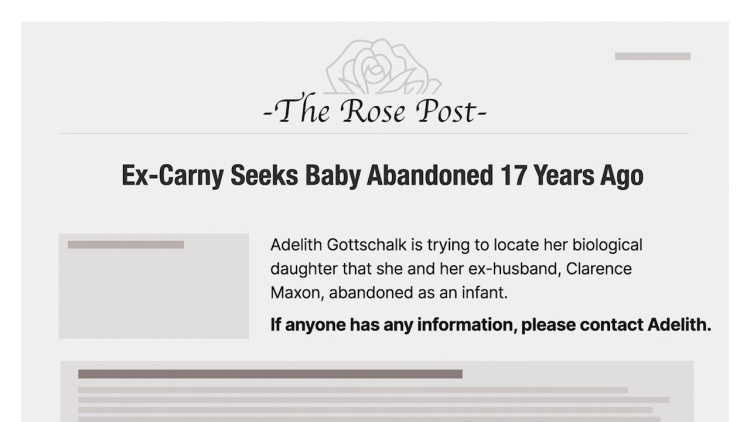Hall v. Post
North Carolina Supreme Court
323 N.C. 259, 372 S.E.2d 711 (1988)

- Written by Sean Carroll, JD
Facts
In July 1984, a newspaper published an article by Rose Post (defendant) entitled “Ex-Carny Seeks Baby Abandoned 17 Years Ago.” The article told the story of a former carnival worker’s search for a child she and her former husband had abandoned; the article stated that the baby’s birth father had arranged for a babysitter named Mary Hall (plaintiff) to keep the child for a few weeks and subsequently signed papers authorizing the child’s adoption. Two days later, the newspaper published another article by Post indicating that the child had been located as a result of the earlier article. The article identified the child as Susie Hall (plaintiff) and identified her mother as Mary Hall; the article also detailed a phone call between Mary Hall and Susie’s birth mother, including a description of both families’ emotions. Mary and Susie Hall allegedly fled their home to avoid public attention after the publication of the articles and received psychiatric treatment for their emotional and mental distress. Mary and Susie Hall brought suit against Post and the publishing company (defendant), asserting claims for invasion of privacy. The trial court granted summary judgment for Post and the publishing company. The appellate court reversed, and the North Carolina Supreme Court granted Post and the publishing company’s petition for discretionary review.
Rule of Law
Issue
Holding and Reasoning (Mitchell, J.)
Concurrence (Frye, J.)
What to do next…
Here's why 907,000 law students have relied on our case briefs:
- Written by law professors and practitioners, not other law students. 47,100 briefs, keyed to 996 casebooks. Top-notch customer support.
- The right amount of information, includes the facts, issues, rule of law, holding and reasoning, and any concurrences and dissents.
- Access in your classes, works on your mobile and tablet. Massive library of related video lessons and high quality multiple-choice questions.
- Easy to use, uniform format for every case brief. Written in plain English, not in legalese. Our briefs summarize and simplify; they don’t just repeat the court’s language.





